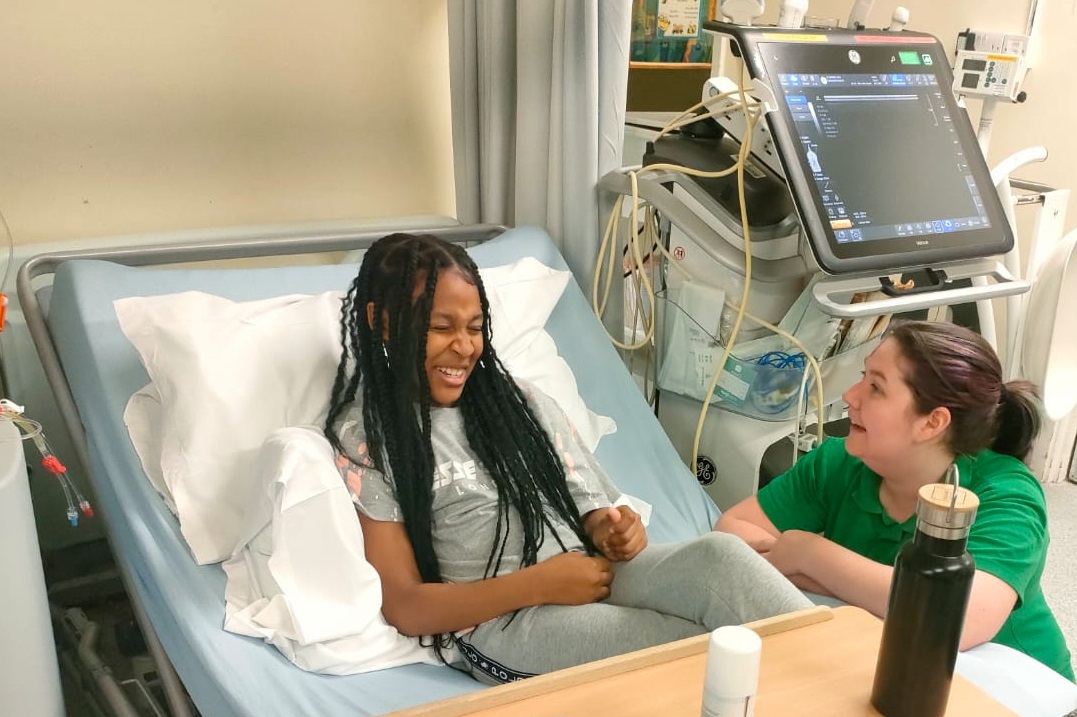
St George’s Hospital has pioneered the use of ultrasound to help administer blood transfusions to patients with sickle cell disease, helping to transform their lives.
One teenager has been able to play sport and enjoy pain-free holidays since its introduction, despite her genetic condition.
Sickle cell disease causes the production of unusually-shaped red blood cells – about 160 patients at St. George’s Hospital, in Tooting, receive regular transfusions to replace those cells with donor blood.
More comfortable and quicker
Neriya-May Hall, 13, one such patient who requires treatment every four to five weeks, and has been receiving care at the hospital for around five years.
St George’s new technique uses ultrasound to guide the needles for the transfusion into her veins, halving the time the procedure takes.
The technique is both more comfortable for the patient and more likely to find a suitable vein the first time than fitting a permanent port.
This lets Neriya-May get home just hours later and return to school the next day.
'It's better this way'
She explains how she has even spoken to other children who are about to start the same treatment to reassure them it will be okay.
She said: “They help me to stay well, and not get sick. Everyone is so nice and supportive, and we know a lot of people here now. I said it’s better. It might hurt for five minutes, but then it’s calm. It’s better this way, because you get it done, and you know you’re good for another five weeks.”
Kate Slemeck, managing director for St George’s University Hospitals NHS Foundation Trust, explained that the specialist centre cares for 700 children and adults with sickle cell disease every year, using advanced treatments to help them live well.
She added: “Neriya’s story demonstrates how such advancements are making a difference to quality of life and experience.
“We couldn’t do it without the support of all the amazing blood donors out there. Every month we use 1,000 packs of red cells to deliver this treatment, and we need people, particularly of Black heritage, to give blood, as donors of the same ethnicity are most likely to provide the best match for patients with sickle cell.”
To find out more, visit here.
(Image: Neriya-May Hall, via St. George's University Hospitals NHS Foundation Trust)
